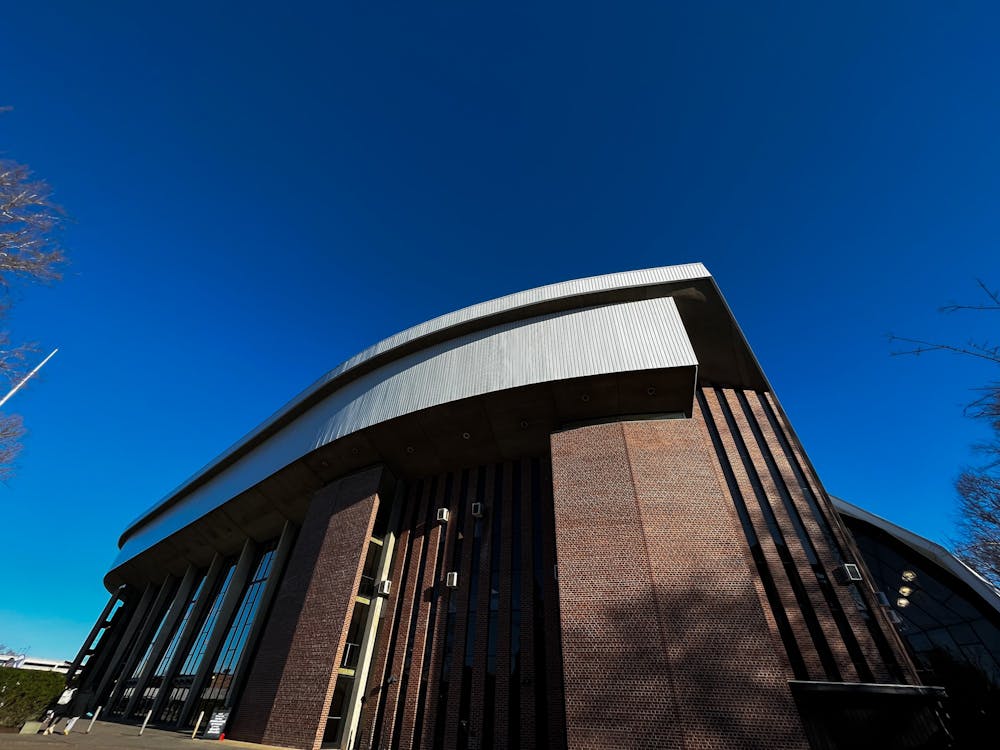On Wednesday, Sept. 13, all 15 players on Dartmouth men’s basketball team filed a petition to unionize. Since then, no athletic teams at Princeton — or the other Ivy League schools — have announced their own push for unionization. Dartmouth’s petition was filed to the National Labor Relations Board (NLRB) by the Service Employees International Union (SEIU).
In an email to The Daily Princetonian, David Berri, a National Collegiate Athletic Association (NCAA) expert who specializes in pay for athletes, wrote that a union would allow student-athletes to “secure more benefits and perhaps higher wages.” According to Berri, the effectiveness of unions in college athletics is limited by the fluidity of the student-athlete scene. Generally committed for four years, the relatively short collegiate careers of student-athletes restrict the impact that a union could have.
Men’s basketball guard Matt Allocco ’24 wrote in an email to the ‘Prince’ stating that “[t]here has been no talk on our team of doing the same [as Dartmouth] and I am unaware of what other teams at Princeton think about it.”
This conversation comes in light of multiple schools challenging the NCAA’s student-athlete model, which has faced criticism in the past few years. According to The New York Times, the model treats student-athletes as “amateur” athletes, limiting endorsement deals with brands. All eight Ivy League schools are facing a federal lawsuit over a lack of athletic scholarships after two Brown University basketball players accused the Ivy League of violating the Sherman Antitrust Act of 1890.
“The landscape of college athletics is rapidly evolving around the country, and we are proudly committed to the ideals of the Ivy League model which at Princeton has resulted in a sound foundation of educational and athletic opportunities while competing at the highest levels of collegiate athletics,” John Mack ’00, the athletic director of Princeton University, wrote in an email to the ‘Prince’ in response to the Dartmouth lawsuit.
Princeton’s Undergraduate Admission website reports that “about 18 [percent] of undergraduates participate in varsity sports” among 38 teams for men and women. According to the ‘Prince’ Frosh Survey, 14.1 percent of the Class of 2027 are recruited athletes.
While the debate on unionization continues to play out, the introduction of Name, Image, Likeness (NIL) deals have taken the collegiate athletic world by storm: states have enabled athletes to be paid for endorsement deals, and the Supreme Court has ruled that the leaders of the sport cannot stop modest payments and benefits related to education.
NIL deals create an employer-employee relationship between a third party — non-affiliated with the University — and the student-athlete. According to Berri, this can “improve the competitive balance” in sports due to a higher prioritization on obtaining better NIL deals instead of simply going to the top-ranked athletic schools or those that offer full athletic scholarships.
In 2021, the NCAA created a new NIL policy, permitting student-athletes to use their name, image, and likeness in commercial pursuits.
According to Mack, Princeton Athletics encourages athletes to explore NIL opportunities, having partnered with Opendorse, a popular NIL platform, to provide resources and streamline the process of engaging in such opportunities. For Princeton student-athletes, this helps to reduce their financial burden while still receiving a Princeton education.
The Ivy League prohibits NIL contracts if deals are not disclosed to the athlete’s university. NIL contracts are also prohibited if the pay compensates an athlete’s participation in their sport, if an athlete’s contract is arranged by the University, or if NIL opportunities are used as a recruiting mechanism.
At Princeton, brands students work with cannot be in conflict with University contracts. Additionally, athletes cannot use University-owned logos or designs in brand deals. Athletes are also not permitted to miss class or mandatory athletic department activities to participate in a NIL opportunity. Athletes are also restricted from NIL deals promoting certain products including adult entertainment, alcohol, or gambling.
When asked whether pushes for unionization will affect recruitment at the University, Mack wrote, “Our goal as a department is as aligned as ever with the University’s mission to recruit and develop students who embrace the holistic experience that comes with being part of Princeton University.”
Justin Tam is a News contributor for the ‘Prince.’
Lia Opperman is an associate News editor for the ‘Prince.’
Please send any corrections to corrections[at]dailyprincetonian.com.





